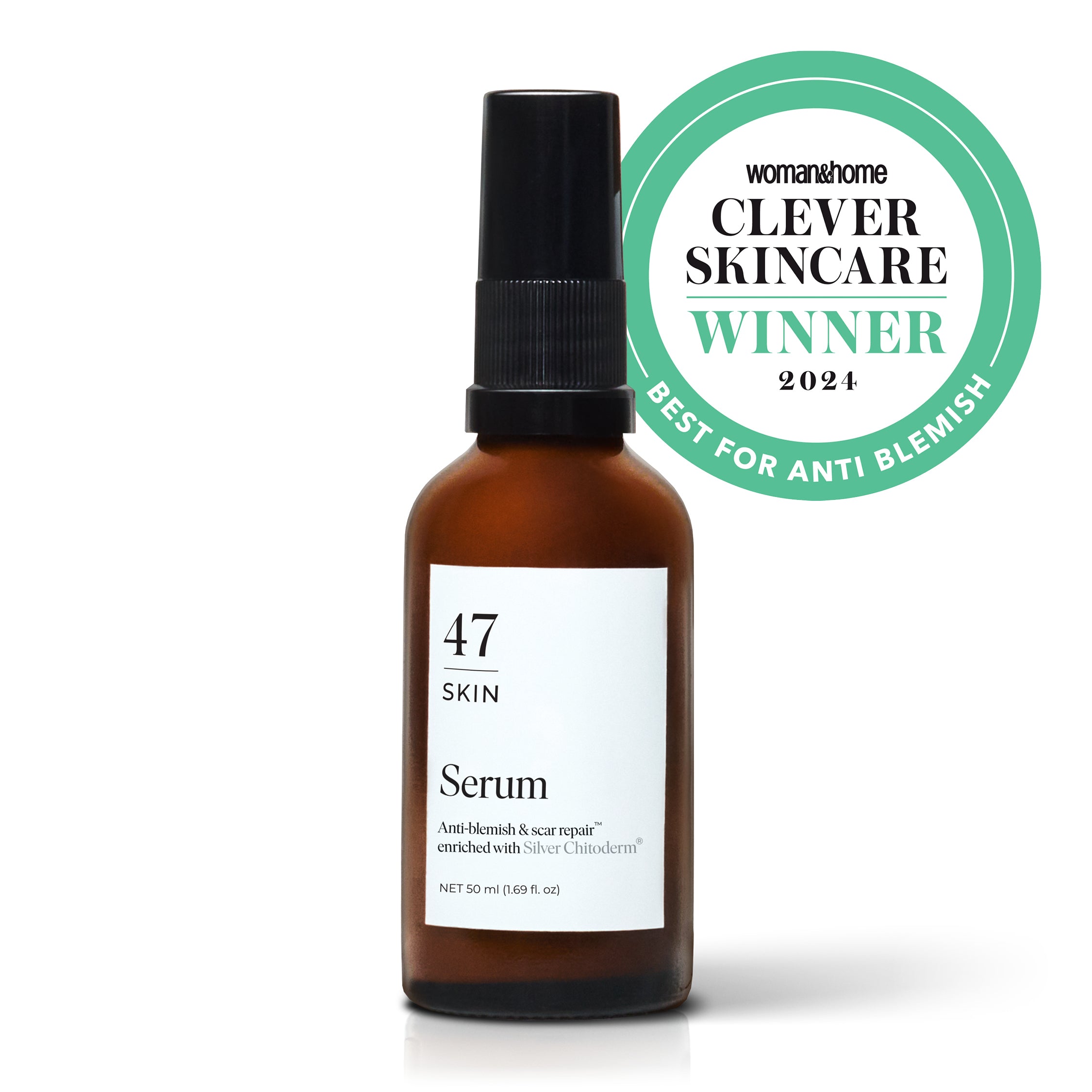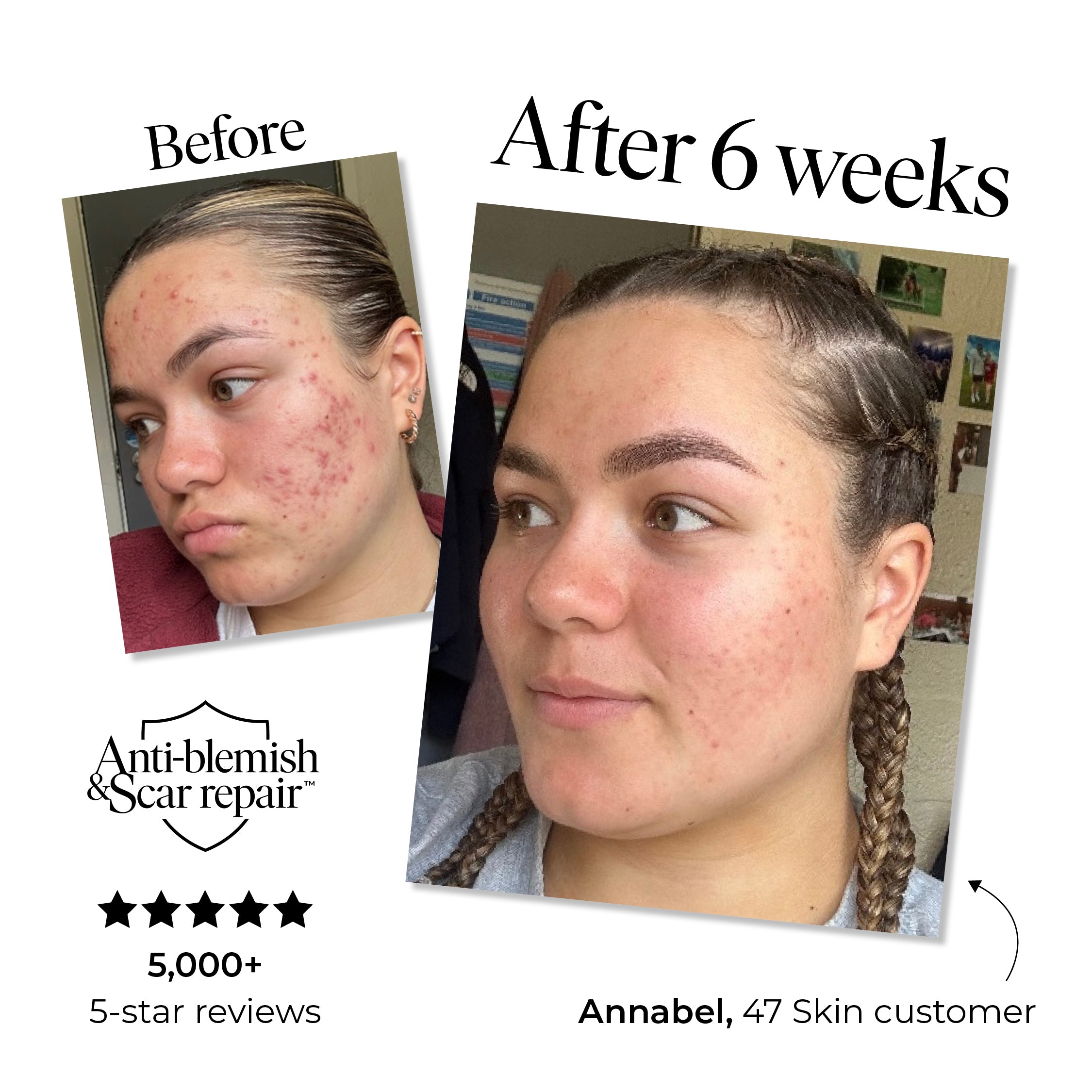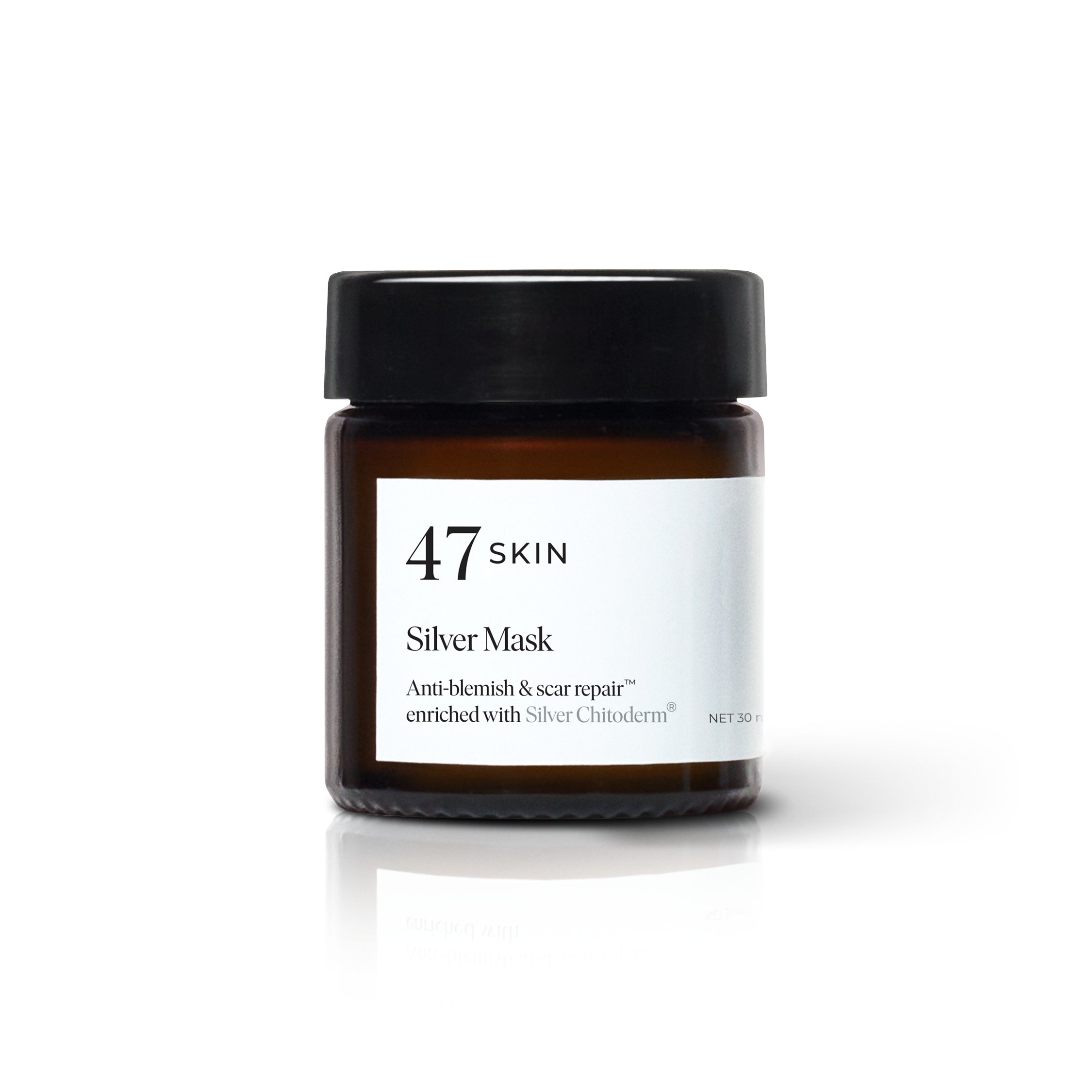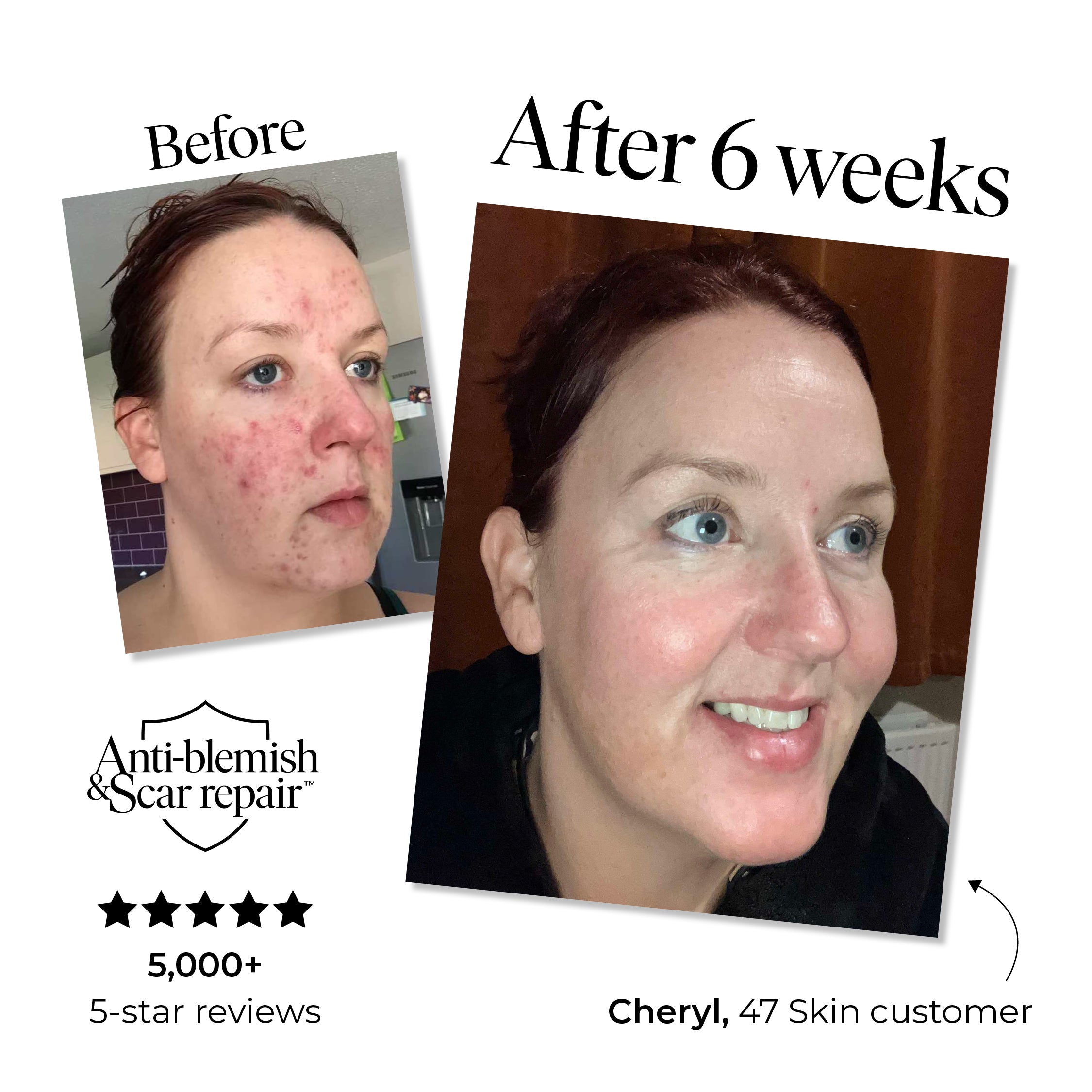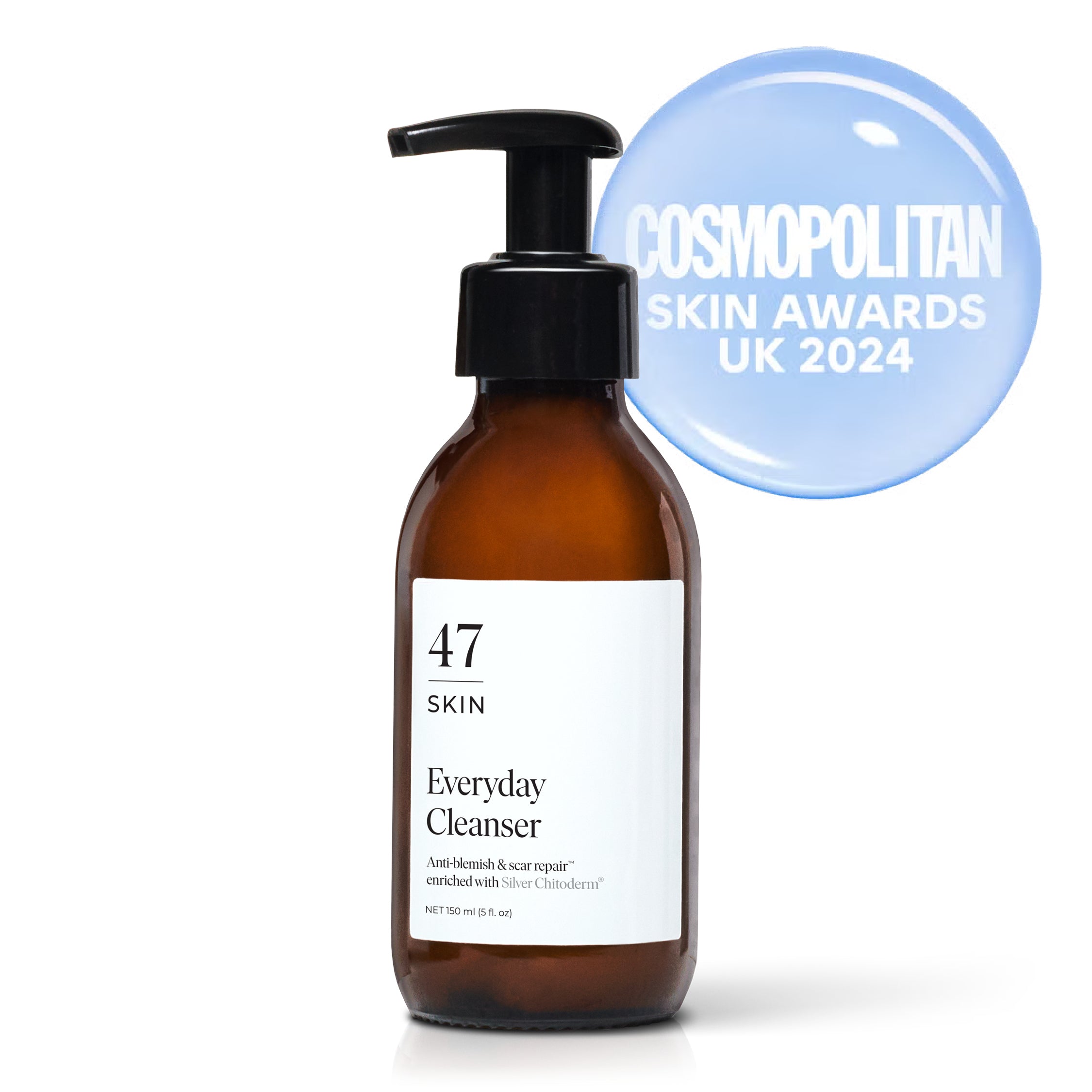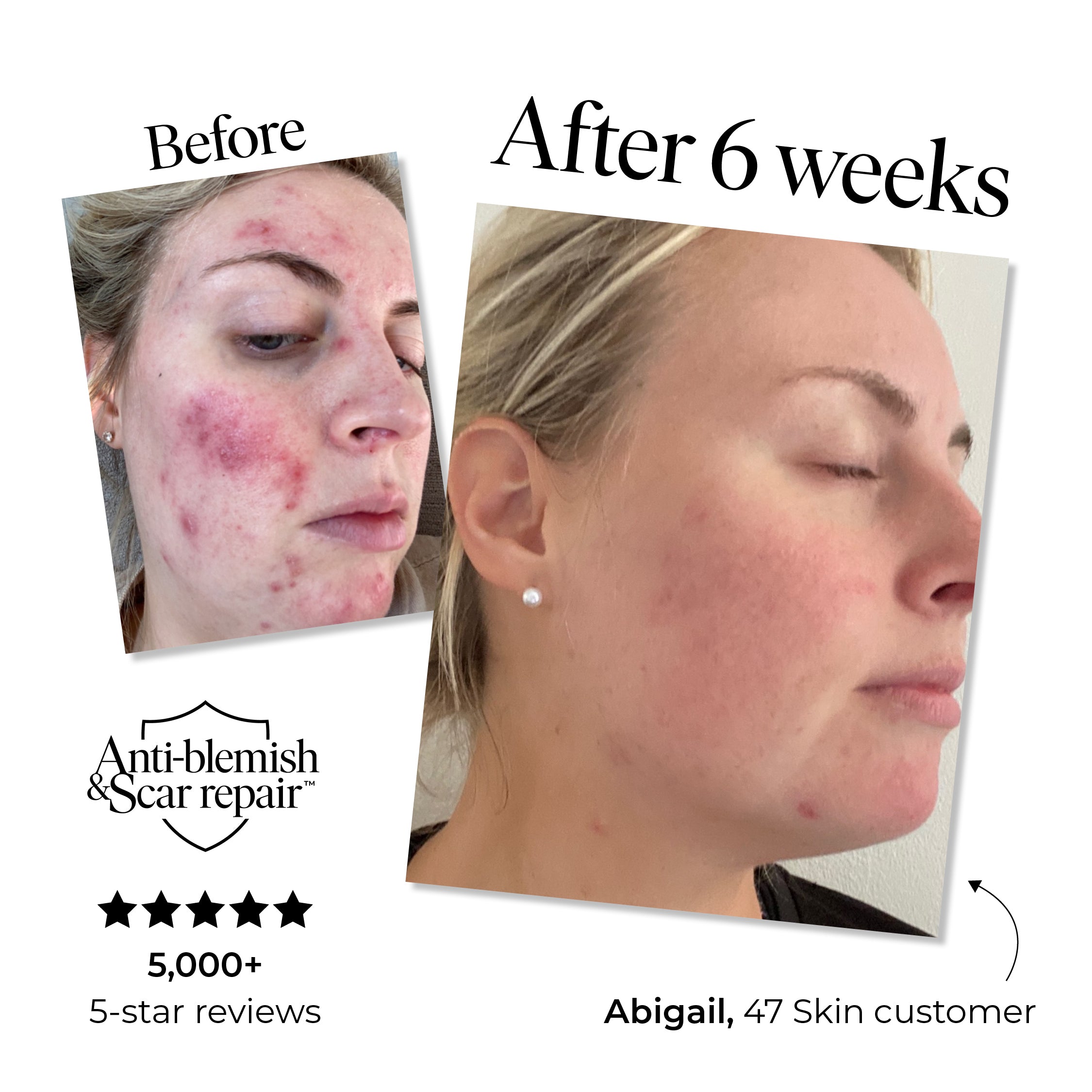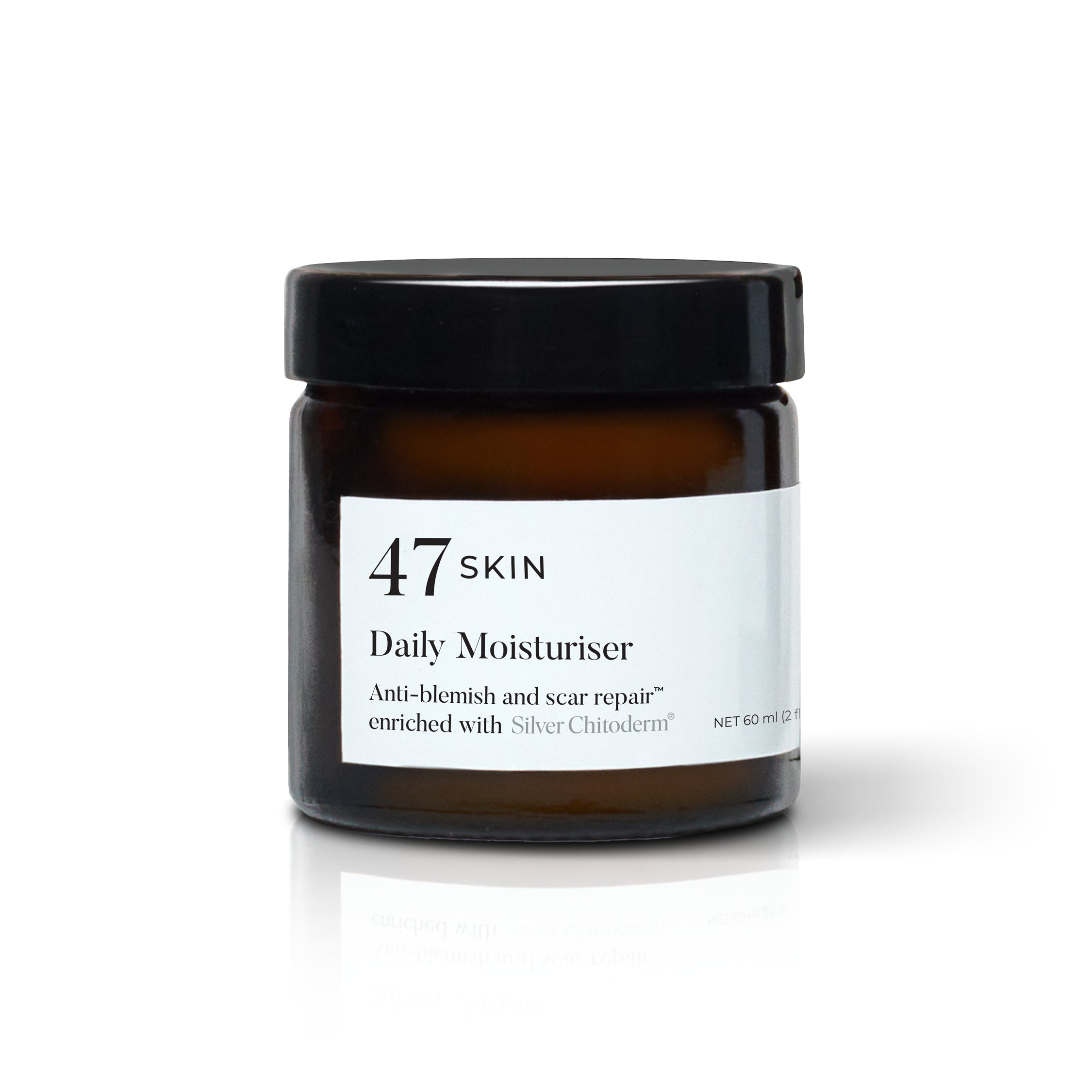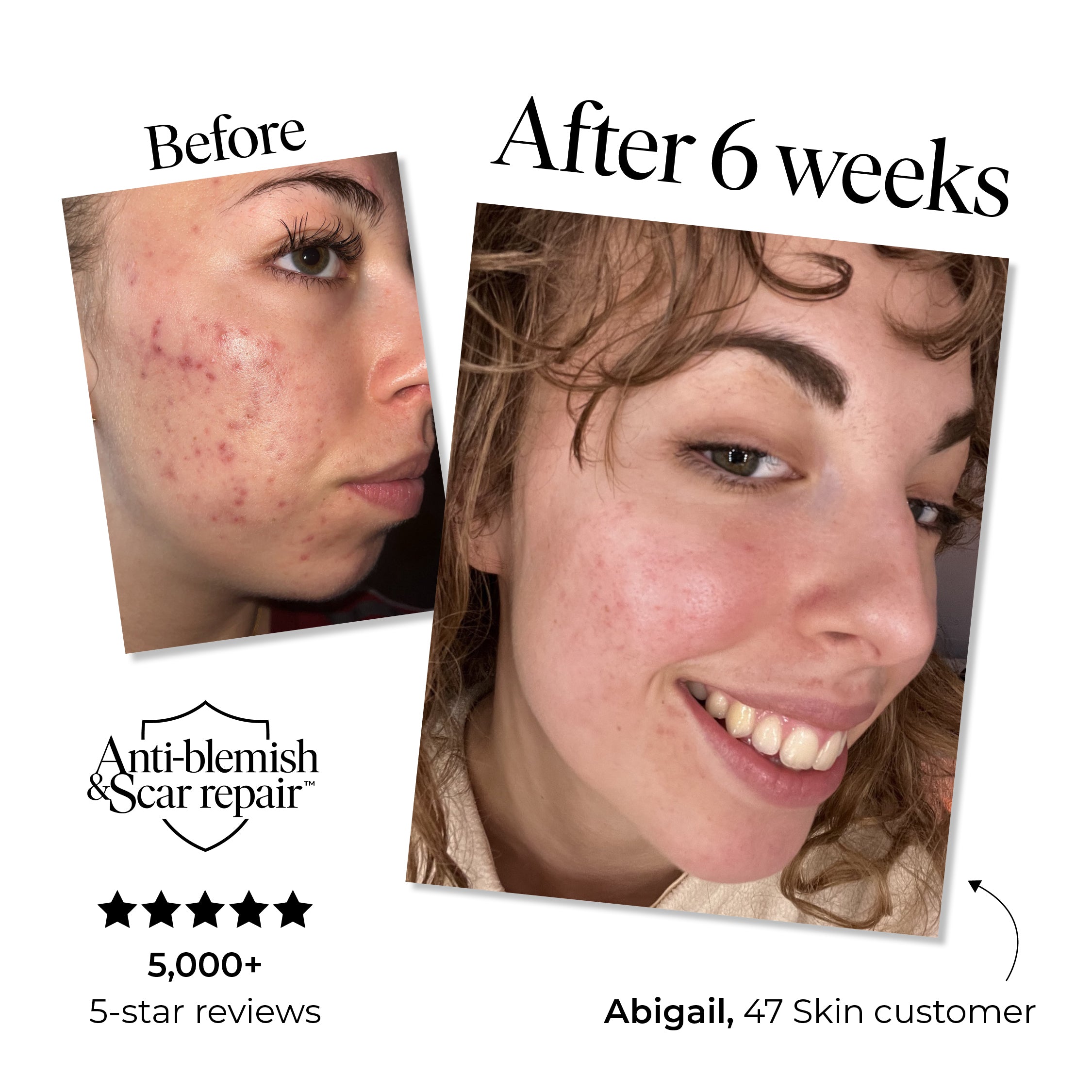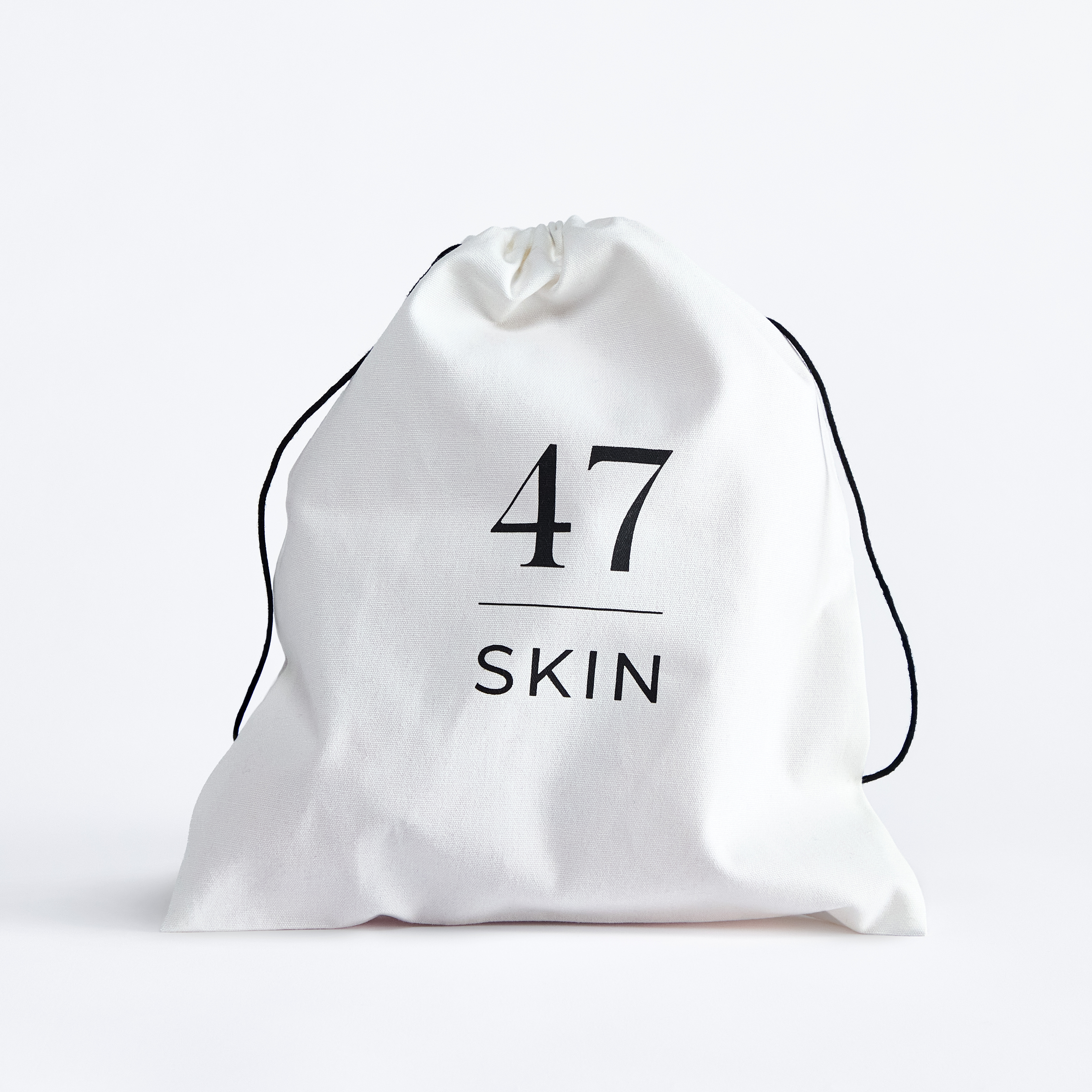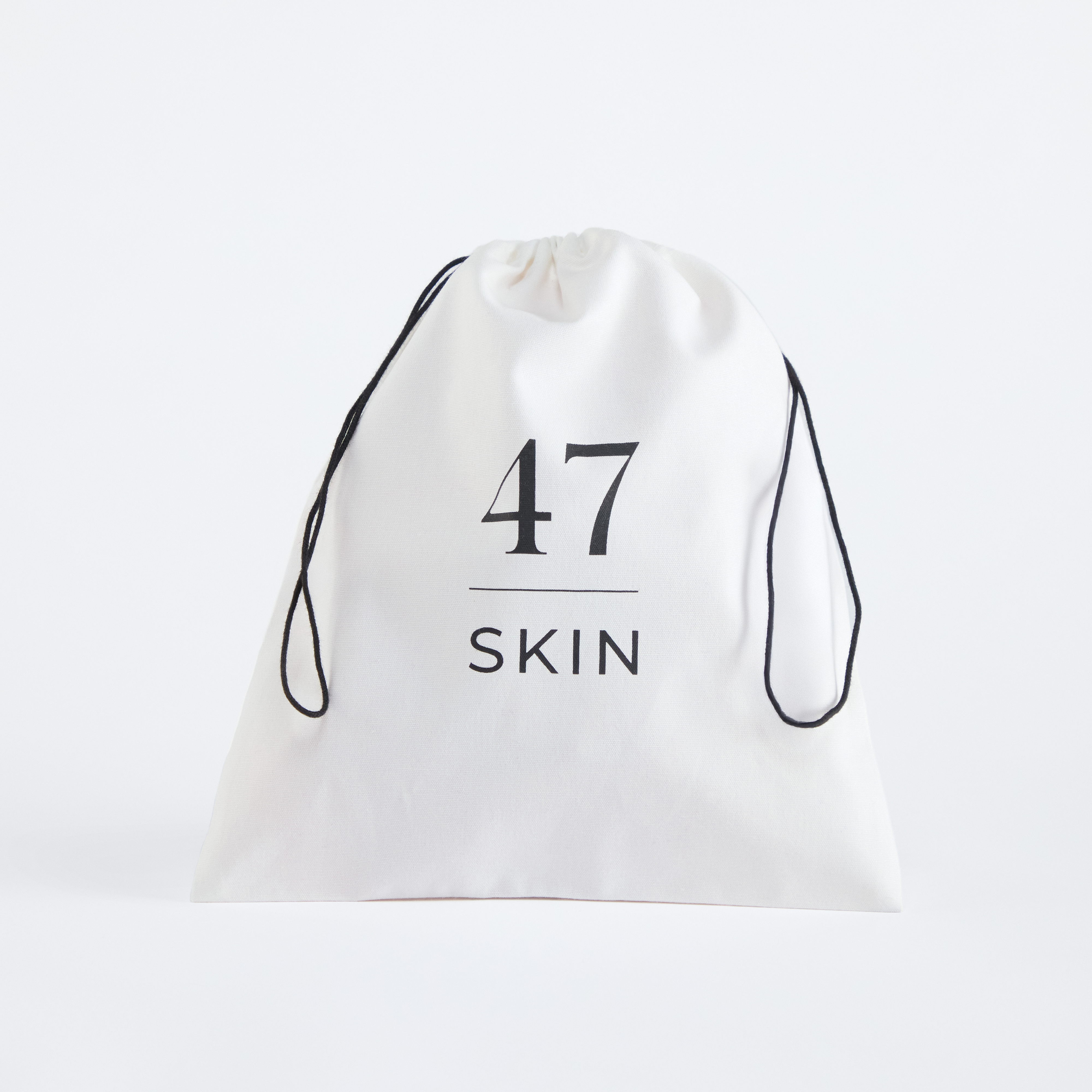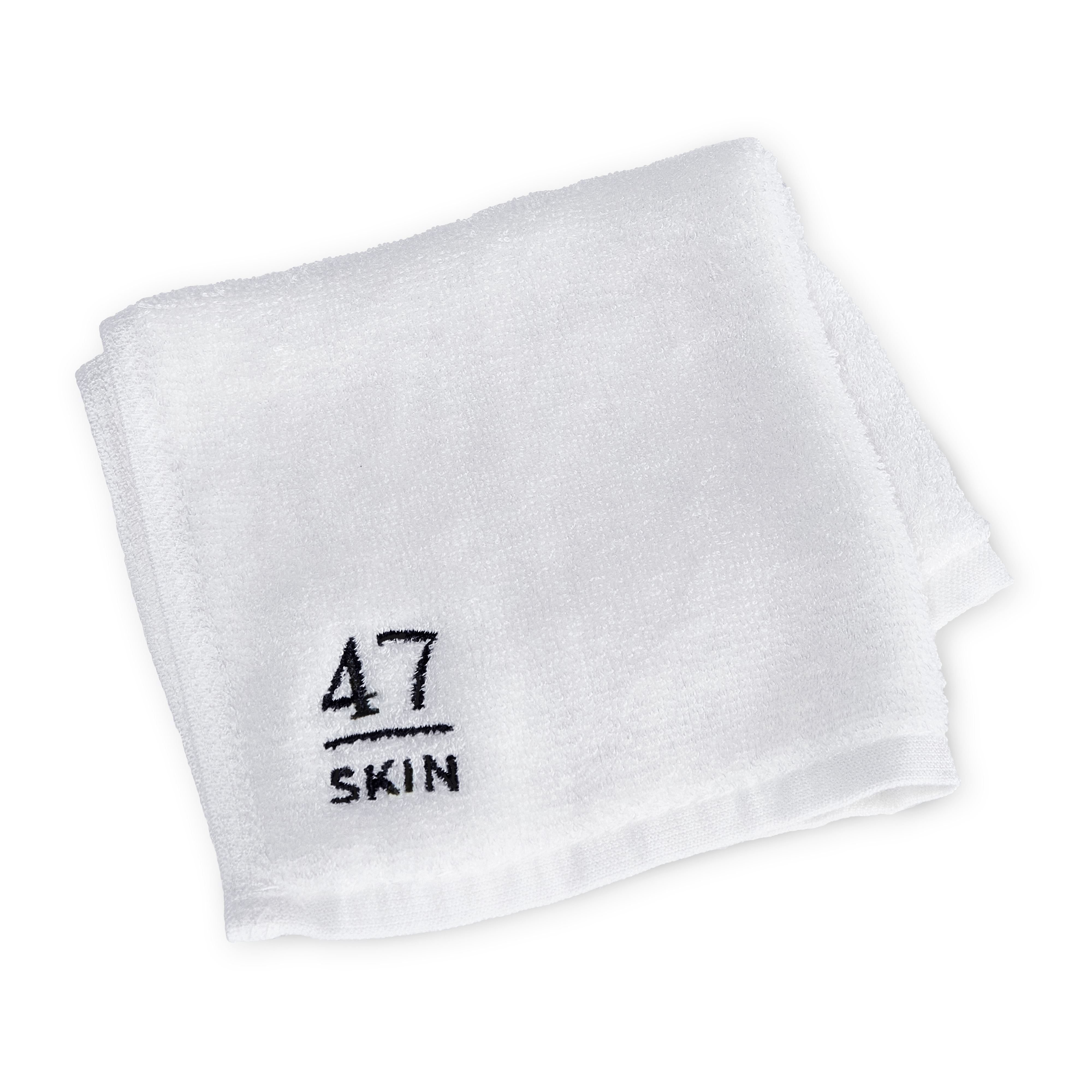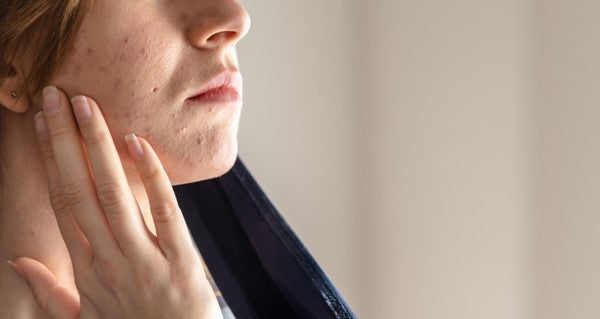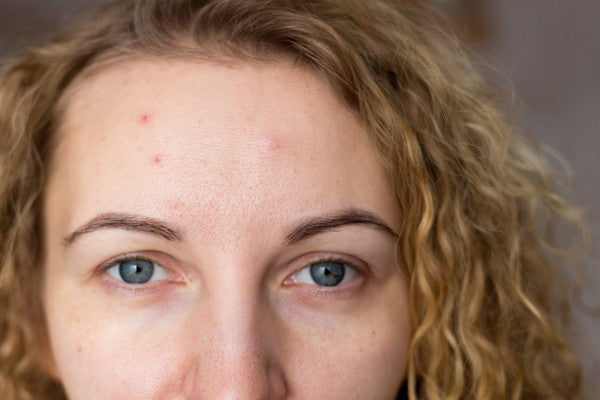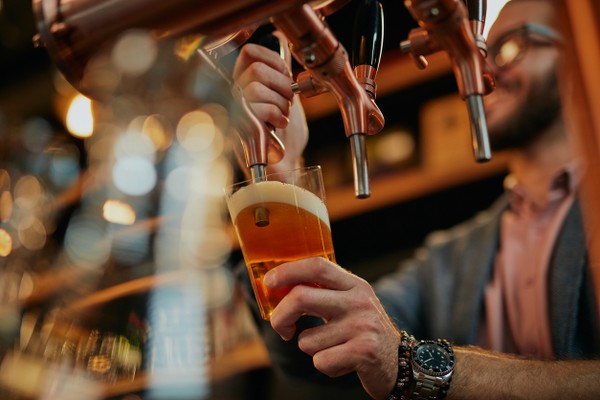
Alcohol & Our Skin: Everything You Need To Know
Alcohol & Our Skin:
Everything You Need to Know
How many times have you accessed the internet and typed into the search bar, “How to clear up bad skin”, or something to that effect? I know I have, countless times, searched online how to be rid of acne, how to keep my skin looking young, how to reduce the appearance of scars or redness… I could go on for hours. Sadly, not everything that these search engines give us is reliable. In fact, some of the skin-shaming advice the internet bombards us with on a daily basis can be downright crushing, making us feel bad about our skin and our natural appearance.
At 47 Skin, we don’t believe in skin-shaming people into buying our products, in fact, it is our mission to make you feel beautiful inside and out, with our products giving you that extra boost of confidence. It’s rare that you find a celebrity that also preaches this message of skin positivity, but actress and entrepreneur Jessica Alba had recently opened up about doing just that.
Before the Covid-19 pandemic, Alba confirmed that she didn’t always take time out of the day to treat her skin. However since the outbreak, she’s been allocating much more time to pampering herself, and taking the time to reset and recalibrate, as a form of self-care.
It's all too common in celebrity culture for well known figures to take us with them on their journey through pregnancy and motherhood, frequently expressing the joys they feel during both. Nonetheless, recently, as conversations around how carrying a child can affect a woman’s body both positively and negatively have become more frequent, some have also been opening up about the less instagrammable aspects of the process, giving a refreshing insight into just how resilient and awe-inspiring the female body can be.
Actress and Made in Chelsea star Millie Mackintosh last year posted a candid caption on her Instagram about her experiences with the additional, lesser talked about, side effects that growing a human inside your uterus can have on your appearance, much to the praise of her 1.4 Million followers.
Speaking of the symptoms she’d experienced alongside the famed pregnancy glow, she wrote “Breakouts, it’s like the week before my period all the time! I seem to constantly have an angry chin spot... also not helped by wearing a mask! I have also noticed pimples on the backs of my arms, I had these towards the end of my last pregnancy and they didn’t completely go away after.”
Flare ups of redness/rosacea, and broken blood vessels
Rosacea is a skin condition that usually affects the face, and is more common in women and those with lighter skin tones. Symptoms of rosacea include a recurring redness across the cheeks and, forehead, nose and chin, broken and dilated blood vessels, an oversensitivity to water and certain skincare products, dry skin, swelling and puffiness around the eyes, increased thickness in skin texture, usually found on the nose, and possibly small red or pink bumps developing across the face.
Though the exact cause of rosacea is not totally clear, alcohol is consistently named as a common trigger of the condition. According to HSE, 90% of people who cut back on alcohol report a significant reduction in flare-ups.
Loss of essential nutrients
Alcohol’s diuretic properties not only drains our bodies of water, but also potential nutrients, by inhibiting the absorption of nutrients we get from other parts of our lifestyle and diet. Examples of this is vitamin A (which, due aids healing, prevents breakouts, and helps keep the skin moisturised) vitamin B1 (which helps reduce redness and inflammation, as well as preventing fine lines and wrinkles), and vitamin B12 (which is vital for cell reproduction). Being deficient in these nutrients may visibly detriment our skin health, regardless of whether we maintain a good daily skin routine in the mornings and evenings.
Can these symptoms be reversed?
Fortunately, many of the above conditions can be improved or eradicated by merely reducing alcohol consumption. For some people, this may be harder to achieve, as alcohol is widely considered a highly addictive substance. For tips and information regarding cutting back on or ditching alcohol the following sites and resources may help:
https://www.nhs.uk/live-well/alcohol-advice/tips-on-cutting-down-alcohol/
https://www.verywellmind.com/tips-for-cutting-back-on-drinking-69453
https://www.drinkaware.co.uk/advice/how-to-reduce-your-drinking/how-to-cut-down-on-alcohol-at-home
If you feel you may be developing a dependency on alcohol, it’s always a good idea to reach out, and you should never be ashamed to seek help. Below are some organisations that help with alcohol addiction, alongside a selection of helplines:
https://www.nhs.uk/live-well/addiction-support/drug-addiction-getting-help/
https://alcoholchange.org.uk/help-and-support/get-help-now/about-alcohol-treatment
Alcoholics anonymous (UK) – Call +44-800-9177-650
Chat online with an advisor – https://www.drinkaware.co.uk/chat-with-an-advisor/
Confidential helpline – 0300 123 1110
